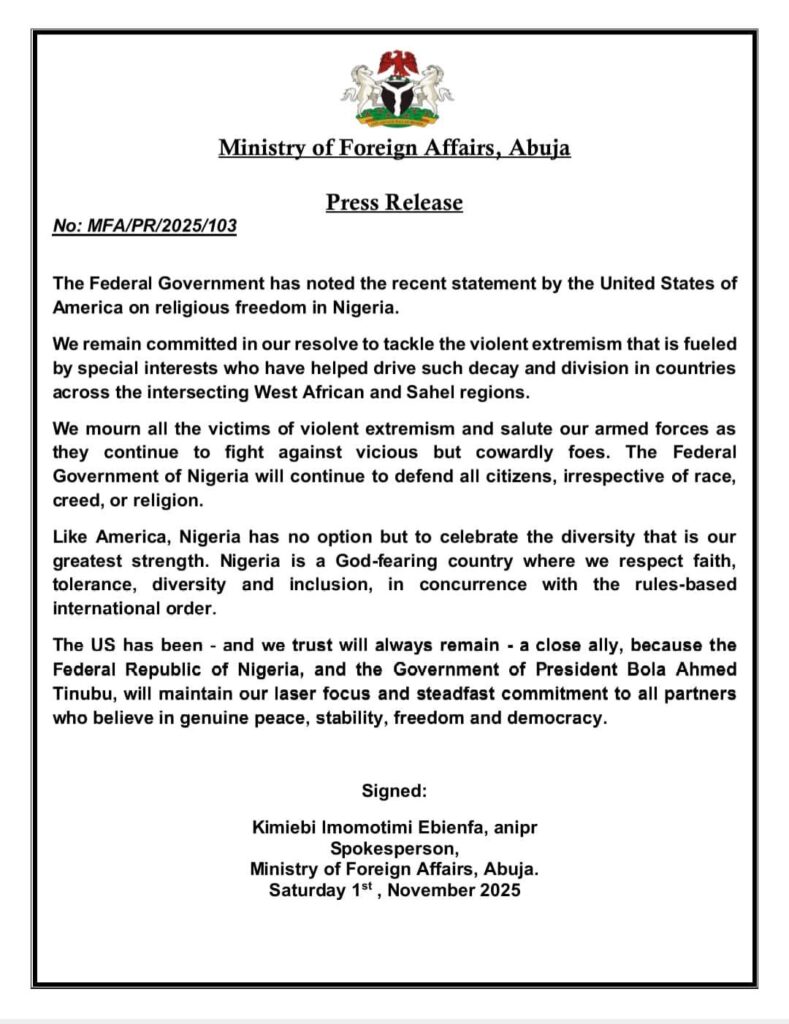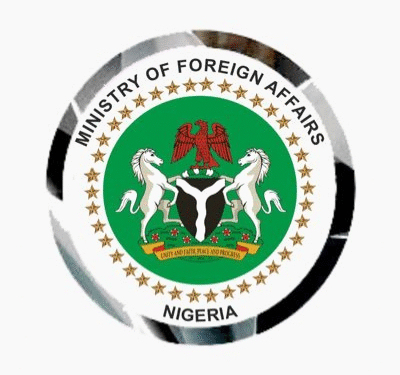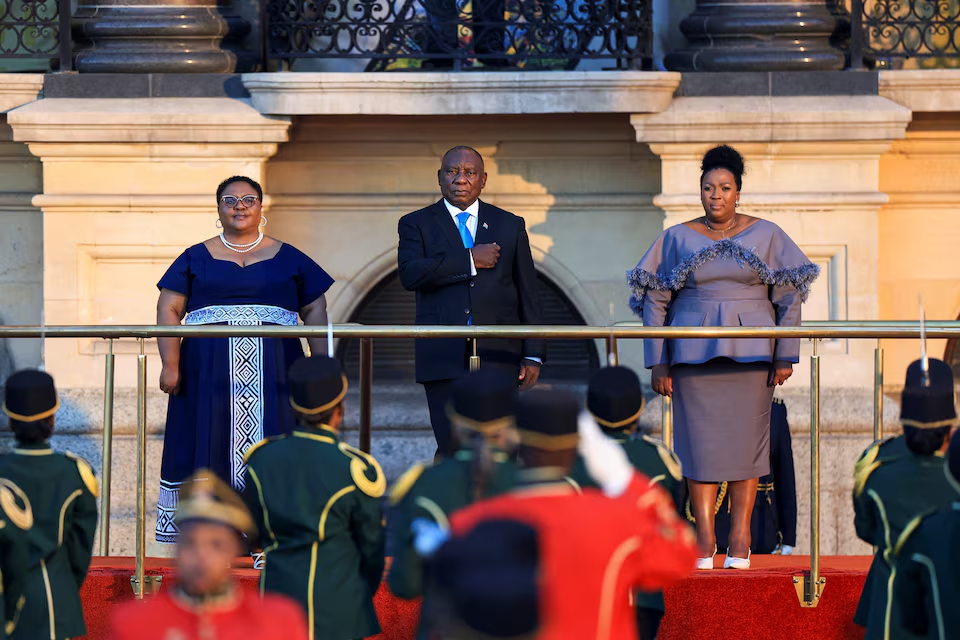The Federal Government has dismissed claims by United States President Donald Trump alleging mass killings of Christians in Nigeria and his decision to designate the country as a “Country of Particular Concern.”
In a statement on Saturday, the spokesperson for the Ministry of Foreign Affairs, Kimiebi Ebienfa, said the claims were inaccurate and did not reflect Nigeria’s realities.

“The Federal Government of Nigeria notes the recent remarks by US President Donald Trump alleging large-scale killings of Christians in Nigeria and calling for the country’s designation as a ‘Country of Particular Concern.’ These claims do not reflect the situation on the ground. Nigerians of all faiths have long lived, worked, and worshipped together peacefully,” the ministry stated.

While appreciating global concern for human rights and religious freedom, the statement stressed that Nigeria remains committed to promoting peace, interfaith harmony, and the protection of citizens’ rights under the leadership of President Bola Tinubu.
“Nigeria will continue to engage constructively with the Government of the United States to deepen mutual understanding of regional dynamics and the country’s ongoing peace and security efforts,” the ministry added.
Trump, in a Truth Social post on Friday later shared on the White House’s X handle claimed that Christianity was facing “an existential threat” in Nigeria, alleging that thousands of Christians were being killed by “radical Islamists.”
He wrote, “Christianity is facing an existential threat in Nigeria. Thousands of Christians are being killed. Radical Islamists are responsible for this mass slaughter. I am hereby making Nigeria a ‘Country of Particular Concern.’”
The former US president also called on key members of Congress, including Congressman Riley Moore and House Appropriations Committee Chairman Tom Cole, to “immediately look into this matter and report back.”
However, Nigeria’s Minister of Information and National Orientation, Mohammed Idris, in an earlier interview with CNN, refuted the narrative that attacks in the country are religiously motivated.
“Some of the claims made by US officials are based on faulty data and the assumption that victims of violence are largely Christians. Yes, Christians have been attacked, but so have Muslims. These criminals target both groups, particularly in the northern part of the country,” Idris said.
The minister cautioned against promoting divisive narratives that could embolden extremist groups and deepen religious tensions.
In a related development, the European Parliament’s Committee on Foreign Affairs, during a press briefing in Abuja on Tuesday, called for stronger protection of vulnerable communities and more accountability in addressing violence across Nigeria.









